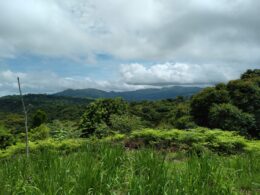Various people and cultures have Very different ideas about what qualities make an individual, community, business, or industry sustainable. For example sustainable living means something different in rural areas than in cities. People in industrialized countries have a different idea than those living in developing countries, or in indigenous communities. And over time the concept’s meaning evolves as awareness increases.
In the 60’s the book Silent Spring played a significant role in catalyzing the modern environmental movement and advocating for the need to preserve nature. Yet in most industrialized countries the concept of ‘sustainability’ was still rarely discussed.
When MIT published Limits to Growth in the 70’s, the problem of exponential resource use on a finite planet became mainstream, with both the environmental movement and new industries expanding to meet demand for more ‘eco’ products and lifestyles.
In the 80’s the concept of ‘sustainable development’ started to spread, purporting to ‘meet the needs of current generations without sacrificing future generation’s ability to meet theirs’. Feelings about sustainable development are mixed, since the aim is great but the observed implementation has a range of issues.
The Real World
Working at a silicon valley strategic consulting firm in the early 2000’s, honestly I felt like sustainability in most contexts meant ‘sustaining profit’ and were simply greenwashing to boost sales.
Now in the 2020’s, almost everyone has heard of sustainability, and many businesses have started realizing its vital importance. The need to relocalize both lifestyles and supply chains is growing self-evident, and people are increasingly valuing relationships in their communities.
Thinking about sustainability, it is vitally important that we consider specifically ‘what’ it is we aim to sustain. In some cases sustainable would be a drastic improvement over current methods. Though in most cases we can go so much further.
Going Beyond Sustainable
‘Regenerative’ is closely related to sustainable, but it sets a more worthwhile goal. Where sustainable refers to maintaining something (independent of whether or not it is worth sustaining), regenerate essentially means to make things better.
Regenerative Living goes beyond personal sustainability to reflect the reality that to be truly thriving, your communities and your ecosystem need to be healthy and integrated.
Regenerative land development aims to make a sustainable lifestyle possible, by designing an ecologically integrated lifestyle on the land, developing the infrastructure and buildings in a way that minimizes environmental impacts, maximizes health of occupants, and regenerates the biodiversity around it.
A regenerative business goes beyond sustainability, improving and uplifting their community. As the ratio of organizations using regenerative practices increases, it accelerates a shift towards values that support healthfulness, collaboration and abundance, rather than degradation, competition and scarcity.
Written by Eric Baudry
Eric can be reached at EricBaudry@UpwardSpirals.Net












